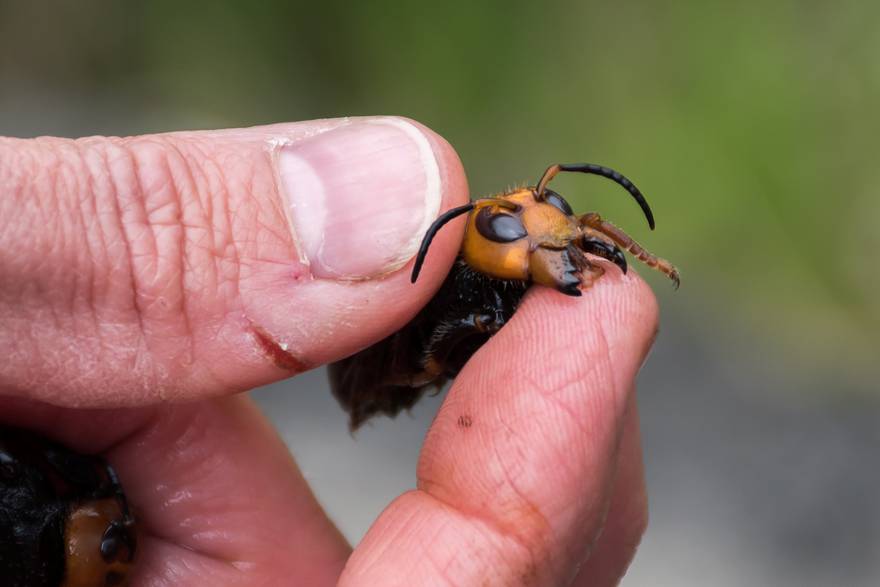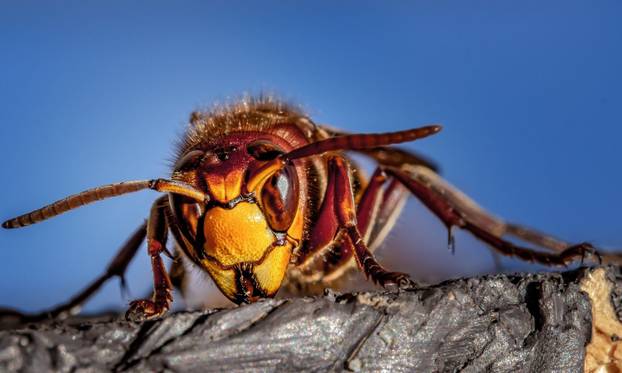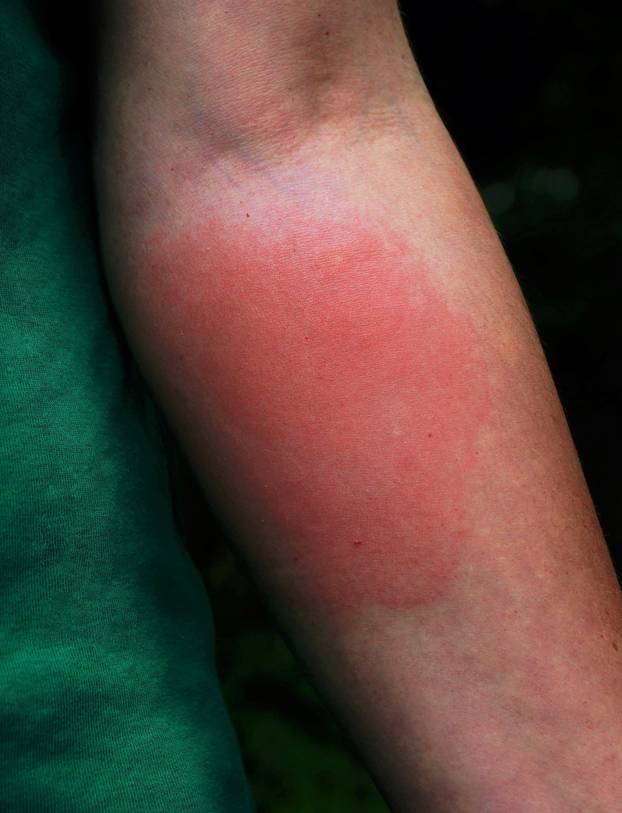Tips on how to keep the hornets away and what to do with sting

The hornets can be extremely aggressive and sometimes attack people even if they are not directly upset, especially in late summer and early fall when they are intense in search of food. Unlike them, bees and bumblebees usually attack exclusively in self -defense, that is, when they feel endangered, experts point out.
Although they are often perceived as very dangerous, the stab of the hornet is actually less dangerous than most people think. The exception is people allergic to insect stabs, which they most often do not even know that they have an allergy until they face the first such unpleasant experience.
Watch the video:
01:08
Hornets and how to behave in nature
The Croatian Beekeepers Association of Beekeepers point out that citizens often mistakenly believe that the stab of the hornet is extremely dangerous, although it actually releases a smaller amount of poison that is less toxic than bee. This impression most often stems from the fact that the stitch is very painful because of a thicker and longer regret. In nature, the hornets play an important ecological role because they remove the carcasses, so forests do not allow them to destroy them. Because it is a endangered species, the hornet is located on the red list of endangered animals. In some countries, such as Germany, their destruction is punished by high fines.
The hornets most often build nests in chimneys, sheds and in attic, then, in neglected facilities, in hollow trees, in canopy … In one nest, they can be up to 700 individuals, so it is extremely important that if you come across such a nest, do not try to solve it yourself because it can be fatal. It is much wiser to invite experts experienced in such situations.
If you come across such a nest in nature, move quietly, without sudden movements.
Namely, if you approach the nest and upset the hornets, they will go on the attack massively, because the nest is their home that they protect at all costs. Keep in mind that one hornet can be stabbed several times, and as it is a stretch longer and thicker than in the island, the poison penetrates deeper into the skin.
The Croatian Association for Disinfection, Disinsection and Pretting (HUDDD) has published a list of experts that remove the hornet nests if you find them in the facilities in which you are staying. You can find a list for the whole of Croatia HERE.
– Do not touch the nests of these dangerous insects yourself, but call the authorized legal entities that will do this expert to do it for you – warn in HUDDD.
– For people prone to allergic reactions, the best prevention is to avoid an area that is known to live on these dangerous insects. However, if we are forced to stay in such a place, it is necessary to protect your body as much as possible (put on long -sleeved shirts and long -legged pants, or if the need for professional beekeepers equipment) – they said and added that these rules of behavior should be adhered to:
- Avoid staying in gardens and orchards near flowers or overcrowded fruit
- not disturb these dangerous insects, not waving their hands because they can make it more aggressive
- don’t shake old branches from trees because these dangerous insects often have nests there
- If a dangerous insect landing on hand carefully remove it by pulling a paper handkerchief on your hand
- not walk barefoot on the grass because some of these dangerous insects are happy to stay in clover
- Avoid carrying too wide clothing that dangerous insects could be wrapped and become aggressive
- Don’t dress the bright colors clothing
- do not apply to the skin of an intense odor
- Fruit juices and sweet foods should be kept covered (axes love sweet, sour, but also grill smell)
- If you drink out of open glasses in nature – see that there is no dangerous insect in them
- a garbage bowl should be kept closed
- The door and windows of houses/apartments should set up protective networks
– The natural alternative to synthetic insecticides/repellents are lavender essential oils, eucalyptus, basil, mint, lemon and citronella because they are extremely rejected by these dangerous insects. People who know that they are allergic to the stings of these dangerous insects should always carry medicines with them – they say in HUDDD.
Allergic reactions to a sting can be very dangerous
– The insects, which includes both hornets and bumblebees, stabbing the poison that causes local or general symptoms. There are dangerous stabs in the mouth, head, neck or very blooded area. Invite an ambulance or seek your nearest doctor in the case of anaphylactic shock and a large number of stings with the appearance of difficulty breathing, choking, nausea, vomiting, dizziness, loss of consciousness. – They warned at the Croatian Institute of Public Health (HZJZ).
What do you have to watch for if you are allergic?
At the Zagreb City Pharmacy, Zagreb advises that people are allergic to insect stabs to behave:
- Remove immediately removed from the sting site and place a cold lining
- Have a readiness medication, apply emergency therapy (autoinjector, antihistamine, corticosteroid) if needed)
- Avoid fast movements like waving your hands because of insect drives because then they become aggressive
- Avoid strong scents like perfume (some sunscreen, scent lotions) because they attract insects
- Avoid eating sweet and juicy fruits in an open space
- Be careful when working in the garden, protect open body parts while working in a flower garden or orchard
- Don’t walk barefoot on the grass because bees often stay in clover
- Avoid wide and fluttering clothing of vibrant colors as the insect can get under clothes
- Sweet foods hold on to the covered
- KANTE FOR GRAIN HOLD CLOSED
- The window in the bedroom keep closed during the day or protect yourself with a network against insects
They note that allergic reactions are most commonly caused by bee stabs, bumblebees, axes, hornets and ants. They say bees and bumblebees are inserted when they are upset while the wasps and hornets are often aggressive and attack and when they are not upset, especially in the late summer and fall.










